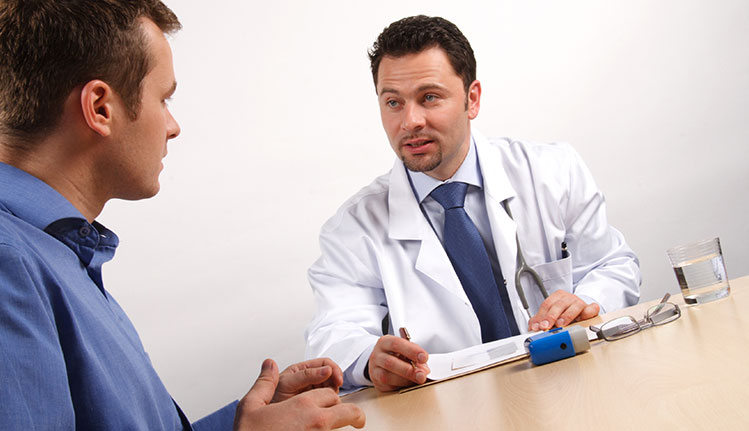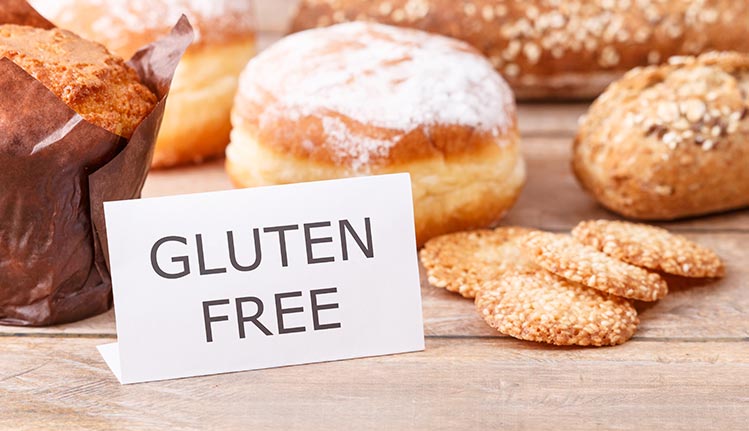How to treat uncomplicated DD? (Not Diverticulitis)
When it comes to Diverticulitis Disease treatment, most doctors will advise patients to increase their fibre intake; this is not recommended if there is inflammation in the diverticula or if a patient is recovering from an infection or has diarrhoea.
A high fibre diet will include:
- Wholemeal bread, pasta
- Brown rice
- Fruit and vegetables – avocado, apricots, unpeeled apples and pears, cabbage, broccoli, Brussels sprouts, cauliflower, carrots, celery, pumpkin, sweet corn, spinach, asparagus stems, baked potato.
- Legumes (peas and beans) – most types of legume, including garden peas, French beans, kidney beans and baked beans.
- Nuts – all nuts, in particular, almonds and peanuts
- Grain (cereal) foods – whole grain wheat, rice and corn products such as bran flakes, shredded wheat, brown rice and wholemeal bread.
- Other grains include oats, millet, barley, sorghum and rye.
- Bran – It is advised to increase the amount of bran in your day to day diet gradually; this will control the amount of extra gas that is produced within the large intestine. It is very important to make sure that the amount of fluids that you drink is in line with the increase in fibre that you are consuming.
When you start to increase the amount of fibre that you consume, you need to be aware that the rest of your diet should also become healthier. To follow a healthier diet, you should generally cut down on the amount of sugar and fat you eat and increase the amount of vegetables, fruit and protein that you eat. To increase fibre, you will need to increase the grain foods that you consume as these types of food will supply a large proportion of the required dietary fibre.
For many patients simply increasing vegetables in the diet will relieve their symptoms and return their bowel activity to normal. Fibre intake can be supplemented by adding coarse bran to food (e.g. to yoghurt, soups, gravy, mashed potatoes, cereals etc).
The doctor may prescribe dried fibre bulking agents:
- Ispagula husk
- Sterculia
- Methycellulose
A few patients who still experience colicky pain and distension need treatment with drugs called antispasmodics or peppermint oil. These reduce the spasm in the colon which is often the cause of these symptoms.
If you find it difficult to make any changes to your diet or would like more guidance, then a referral to a dietician may be helpful. They are trained to assist patients with making changes to their diet and also identifying trigger foods that may make symptoms worse.
Living with Diverticular Disease
Diverticular Disease can be something that affects your day to day life, depending on the severity of your condition and your DD symptoms. The way in which you cope with your DD will depend on the type of DD that you suffer from.
If you have diverticulosis, which has been discovered as part of a medical examination for another condition, you do not need to be overly worried about the diverticula present. Most people with diverticulosis do not ever have symptoms and live a life that is not affected by DD. However it would be useful to follow a healthy diet with increased fibre and also increase the exercise that you undertake.
If you have suffered from a single bout of diverticulitis, and all your symptoms are under control, you may also not need to concentrate too much on your condition. It is likely that you will not suffer from further attacks if you have not suffered a second attack of diverticulitis 5 years after your first attack.
If you have suffered with continuous DD symptoms but they have not been serious enough for you to be admitted to hospital, you will find it more difficult to deal with your symptoms and your day to day life.
You will have likely been prescribed some antibiotics to counter your DD symptoms along with a high fibre diet with supplements and advice to undertake some gentle exercise. Following these precautions, there is not much else that your doctor can advise you to do. It will be up to you to manage your condition and symptoms as best as you can to suit your own lifestyle.
Coping with continuous problems
Some people may decide to learn as much as they can about DD while others may decide to try and ignore DD and get on with life as best as possible.
It is important, whichever way you choose to deal with your DD that you do not underestimate your symptoms and that you do not try and hide symptoms from family and friends so as not to be a burden. It is always helpful to talk to someone about any problem especially a problem that can potentially affect your day to day life.
Discuss your symptoms with your family and friends, help them to understand DD. If they are more knowledgeable about DD and your condition they are better equipped to provide support and help when you need it.
Try and keep abreast of any new developments relating to the disease which could be extremely helpful. There is some evidence that exercise may help to reduce the risk of developing DD. It has not been determined whether exercise is beneficial once you have developed DD but is reasonable to assume that it does. Starting an exercise regime should be undertaken with careful consideration and awareness of your own fitness levels and abilities. Your age, weight and general health will dictate what sort of exercise you can do. Try and take up gentle exercise to begin with and increase gradually.
Hospital admittance
- Without surgery
If you have been admitted to hospital for your Diverticular Disease Treatment, your condition will be relatively severe. You will probably have had diverticulitis but also associated complications; possibly an abscess or inflamed tissue. If during your hospital stay you have not had any surgery, it is likely that surgery will be something that you will need to consider in the future. Most surgeons would advise surgery following two bouts of diverticulitis. If you avoid surgery the complications associated with your DD may increase in severity.
Your surgeon will advise you of the possible surgery to be undertaken and the factors that surgery will depend will be the gravity of your symptoms and the discomfort and pain that you suffer as a result of your symptoms.
This is called ‘elective surgery’ – surgery takes place after careful consideration between you and your surgeon. However, not all surgery is elective. Sometimes symptoms and the condition of a patient can be so bad that surgery is conducted via an emergency operation.
- With surgery
If you have had surgery that has removed a section of your large intestine, you might have a stoma opening onto your abdomen.
A stoma is formed by the intestine being brought to the surface of the body through a surgically made hole in the skin. The contents of the intestine are excreted through the stoma opening, rather than through the anus and the faeces are collected in a bag.
With regards to DD, the stoma is a temporary measure which is intended to allow healing of the intestine after the damaged part has been cut away. For many, the removal of the damaged intestine also removes the symptoms of DD.
Further Information
If you are experiencing any of the problems mentioned in this factsheet, you may wish to seek advice from your GP or healthcare professional.
Further information and downloads can be found in the resources section.
Living with a bowel condition can affect you emotionally and socially; sometimes it can help to speak to others who understand your situation. The Bladder & Bowel Community Support Group is available 24 hours today and will allow you to connect with those who share your condition. Start your own topic today or just follow one that interests you.









